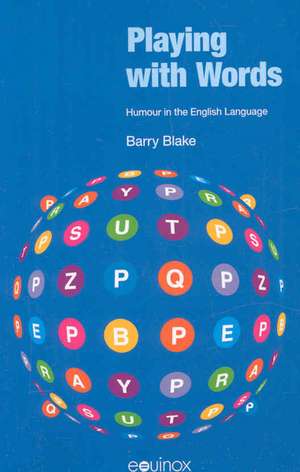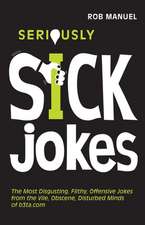Playing with Words
Autor Barry J. Blakeen Limba Engleză Paperback – 31 mai 2007
Preț: 149.86 lei
Nou
Puncte Express: 225
Preț estimativ în valută:
28.67€ • 30.02$ • 23.73£
28.67€ • 30.02$ • 23.73£
Carte tipărită la comandă
Livrare economică 07-21 aprilie
Preluare comenzi: 021 569.72.76
Specificații
ISBN-13: 9781845533304
ISBN-10: 1845533305
Pagini: 192
Dimensiuni: 143 x 216 x 10 mm
Greutate: 0.24 kg
Ediția:New.
Editura: Equinox Publishing (Indonesia)
ISBN-10: 1845533305
Pagini: 192
Dimensiuni: 143 x 216 x 10 mm
Greutate: 0.24 kg
Ediția:New.
Editura: Equinox Publishing (Indonesia)
Notă biografică
Barry J. Blake retired from the position of Foundation Professor of Linguistics at La Trobe University, Melbourne, in 2003. He is the co-author of Language Typology (1981) and author of Australian Aboriginal Grammar (1987), Relational Grammar (1990), Case (1994, 2001) and several books on various Australian languages. Most of his past research has been in comparative and historical linguistics, but he is currently researching the functions of language that lie beyond the direct exchange of information, in particular humour and oblique, obscure and secret language.
Cuprins
Introduction 1. The nature of humour Principles of humour, Fun with words, Grammatical ambiguities, Transpositions, Mixing styles, Language in context, Dashing expectations, Clever connections, Logic, or lack thereof , Satire, parody, irony and sarcasm 2. What do people joke about? The cultural background, Beliefs and attitudes, Subject matter , Insults 3. Where humour is to be found Professional humour, Amateur humour 4. Laughs in the lexicon Compounds, Blends, Prefixes and suffixes, Euphemism, Colourful language, Names 5. Puns Basic puns, Puns across word boundaries, Puns involving phrases, Cross-language puns, Substituting a similar word 6. Grammatical ambiguities Which part of speech?, Scope, Participial clauses, Co-ordination, Missing subjects and objects, Pronouns and other problems of reference 7. Jokes Stories, Books, Book titles, Shortest books, Blonde jokes, Cannibal jokes, Dumb jokes, Definitions, Generalisations and exhortations, Graffiti, Headlines, How many x's does it take to change a light globe?, Knock Knock!, Oxymora and other self-contradictions Questions Signs, Stickers, Tom Swifties, Wellerisms, What do you get if you cross x with y?, What is the difference between x and y? 8. Wit 9. Language in context 10. Errors Slips of the tongue and mispronunciation, Accents and lisps, Malapropisms, Misinterpretations, Misspellings, Mispunctuation, Grammar as she is spoke, Logic or lack thereof 11. Rhymes Nursery rhymes, Children's verses, Adult verses, Limericks, Clerihews, Verse today 12. Beyond a joke

